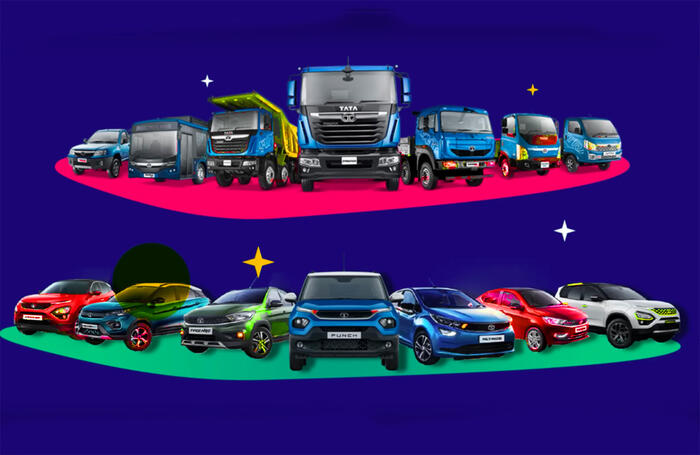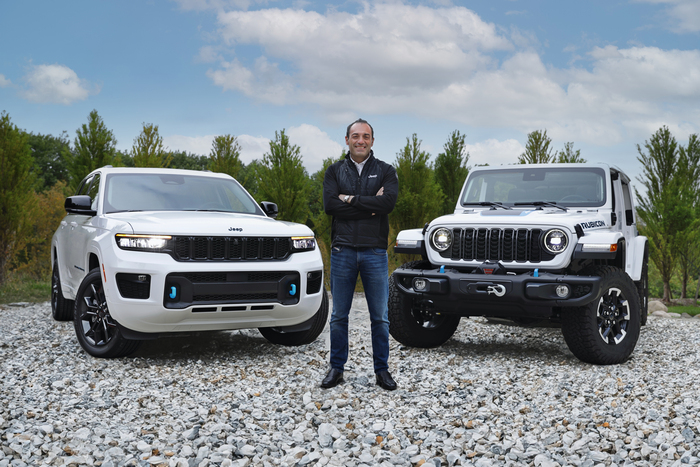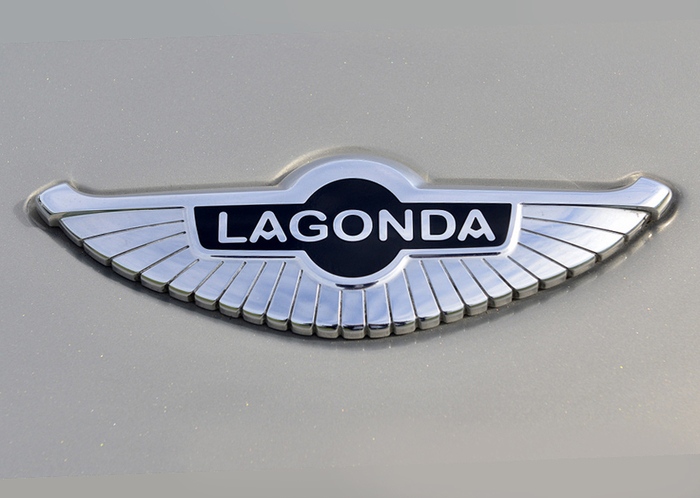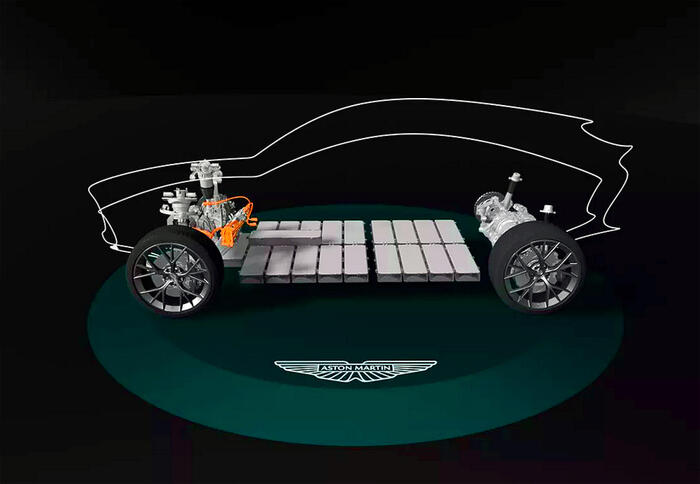Enlarge image
Pioneer: Wendy Trupo with her Volvo XC40 Recharge electric SUV
Photo: Julia Fiedler
The beach in the South African town of St. James is endless, waves foamingly roll onto the coast.
You can watch them from Wendy Trupo's terrace, her house is right by the sea.
The 71-year-old artist has just fetched ginger biscuits and cappuccino from the kitchen and is now chatting with neighbor Amiene van der Merwe.
It's about Wendy's new car: the Volvo XC40 Recharge, one of the first e-Volvos in South Africa.
Amiene is thrilled because she also describes herself as a "greenie" and runs a green taxi startup.
In South Africa, the birthplace of Tesla boss Elon Musk, e-cars are an exotic status symbol for technology fans and environmentally conscious high earners.
A third of all South African households now own at least one car.
But electric cars?
You hardly ever see it even in the center of Cape Town.
In 2019, 154 vehicles were sold across the country, up from 92 in 2020. Tesla isn't even on sale.
German brands double the offer
However, the German premium manufacturers now see the opportunity to take off in South Africa.
In the next 12 to 24 months, the market for luxury electric vehicles will grow strongly, explains Mercedes-Benz.
You can already see a lot of interest in the electric models.
At Audi it is said that they want to set the course early on.
From South Africa, the industry takes a look at the entire African continent.
In mid-February, the German industry association VDA and the African automobile association AAAM agreed to work together on the development of e-mobility at the EU-Africa Business Forum.
"The African continent is highly fragmented, but will continue to gain importance in terms of alternative drives," said VDA President Hildegard Müller.
Mercedes-Benz is launching five models in South Africa this year, Audi three and BMW two.
This more than doubles the selection of electric car models.
Because so far only six models were on offer: Nissan Leaf, BMW i3 and Jaguar I-Pace as pioneers, then came Mini SE, Porsche Taycan and Volvo XC40.
Anticipation at the dealership
There aren't any to be seen in Cape Town's car dealerships.
Jaguar is no longer stocking the I-Pace.
In three years it was only sold once in Cape Town.
The seller said the price was probably too high.
At Mercedes-Benz, on the other hand, the first electric car has not yet arrived.
Sales of the electric compact SUV EQA will start in June.
A charging station is already hanging, the anticipation can be seen in the Mercedes dealer.
However, the vehicle is already reserved, there is also a waiting list, but delivery quantities are a problem.
The dealer explains that because the market is so small, car dealerships in South Africa only received small numbers.
Vehicles went to places where they would certainly be sold, for example to China.
The Volvo dealer does not know when the next electric car will come, it could take a while.
He used to have one.
Wendy bought this.
With solar power for shopping
The artist can therefore see herself as an absolute pioneer.
The women go to the garage, slowly Wendy rolls out the shiny black SUV.
Amiene asks questions about the performance, but Wendy hasn't driven much yet.
The car is only for shopping.
Why does she need a brand new electric car for this?
Wendy smiles.
She wants to charge the Volvo with self-generated solar power.
And points in the direction of the roof, on which a PV system is gleaming in the sun.
She also loves new technology.
She was also one of the first South Africans with an iPhone.
Can a hope of electrifying the whole of Africa be derived from such acts of persuasion by the upper classes?
Everyone together is at the very beginning, admits Audi.
Penalty for Stromer
There are many obstacles to the success of electromobility.
Above all the price.
Unlike in Germany, e-cars are not subsidized in South Africa.
On the contrary: the import tax for electric vehicles is 25 percent, which is 7 percentage points higher than that for combustion engines.
If Alan Winde has his way, this is a screw that urgently needs to be turned.
He is Prime Minister of the Western Cape Province, the region around Cape Town.
»The tax is almost a luxury tax.
I hope that we can abolish them in the next few months, which would reduce the price of electric cars by 25 percent in one fell swoop.
And I think there should be other incentives on top of that.”
However, the prime minister points out that a rapid ramp-up of electromobility is not without problems.
A concern that is also occasionally raised in Germany is a tangible problem here: the power grid is already overloaded.
The power grid is failing
South Africa has had serious problems with the power supply for years and this has led to so-called "load shedding" - the targeted switching off of electricity for private households.
South Africa obtains almost 90 percent of its energy from coal power, which also significantly reduces the climate benefits of e-mobility.
If coal power is available at all: the state-owned energy giant Eskom has catastrophically run down the infrastructure, and now it is completely dilapidated.
At the same time, the economy is growing and with it the demand for electricity – the grid regularly fails.
Last year the electricity was cut off for up to seven hours on some days.
It's not supposed to be that bad in 2022, but buying an electric car under such circumstances is not very tempting.
Wealthy electric car buyers like Wendy circumvent this problem by generating their own solar power.
Being off-the-grid is the trend, many new buildings are now directly equipped with solar systems.
Billions for the green transformation
There are already numerous smaller private wind or solar farms in the Cape Town area.
The city is now launching a tender to diversify power generation, phase out coal-fired power, and become less dependent on Eskom.
For Prime Minister Alan Winde, this is an important future task for electric cars.
They should become part of an energy system of the future.
“Smart grids and associated smaller battery systems can help us operate a much more democratic power grid.
E-cars are part of this strategy because you can use their batteries to store electricity when there is excess energy.«
South Africa is counting on help from the EU for a sustainable power supply.
Billions will flow into the country in the coming years to enable the green transformation via an energy partnership that also includes the USA.
Money for a charging station or 20 school toilets?
South Africans often and enjoy driving their cars.
The country is vast and the distances are enormous.
So far, however, there are only slightly more than 200 public charging points throughout the country, which is three times the size of Germany with its more than 50,000 charging points.
Fear of range is therefore justified, but Winston Jordaan just laughs and waves it off.
"I don't know what the hell you're talking about!
That's how I always react when someone claims that the infrastructure is bad.« As head of the company Gridcars, he built all South African charging stations.
He says future technologies have always interested him.
He designed flying cars at university, and now he sees the expansion of the charging infrastructure as his contribution to bringing mobility forward.
“First of all, we are building strategically, for a nationwide supply.
We already have a fast-charging station at least every 200 kilometers along the trunk roads.« Anyone who is used to fast-charging in Germany will rub their eyes at a South African DC charging station.
"Fast" usually means just 60 kW here.
However, newer charging stations still have an output of 90 kW.
For comparison: Tesla's Supercharger network in Europe and North America promises peak outputs of 250 kW.
Other stations already offer 300 kW.
The charging infrastructure in South Africa is exclusively privately financed.
»The government has not yet built any charging stations.
But it would also feel wrong if she did it,” says Jordaan.
»Instead of one charging station, you can build 20 toilets in a school.
And we have more than 3,000 schools in our province alone that don't have toilets."
He found support elsewhere.
»In 2019 Jaguar approached us and signed a three-year contract with us to brand our charging stations.
In the future, our business model should be the sale of electricity, but for the time being we can stay afloat.
There is also a similar deal with Audi, where we are currently building new charging stations.” In the long term, Winston Jordaan wants to electrify all of Africa.
Better diesel then
If you are looking for an e-car in Cape Town, you can also be lucky.
The car dealership of the BMW brand Mini has a Mini Cooper SE in stock, even a test drive is possible.
The interest is great, but many people shy away from making a purchase, says the dealer.
That's why he always starts test drives at the charging station to take away a few of the customers' worries and enlighten them.
He struggles with the cable that cannot be detached.
A taxi driver strolls over from the parking lot across the street.
He is curious.
»Sometimes I talk to my colleagues about e-cars, we find it exciting, especially the driving experience is supposed to be great.
But for me it would only be something if you didn't get stuck with it and charging was faster.« The range and charging time that the Mini dealer tells him do not convince him.
His diesel is more reliable there.
When asked whether climate change isn't important to him, he has a clear answer: "It's not our top priority."















